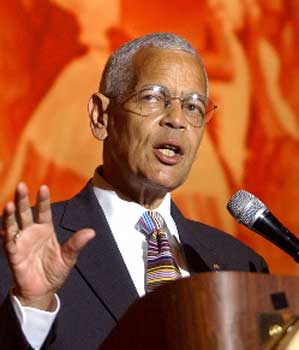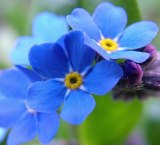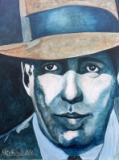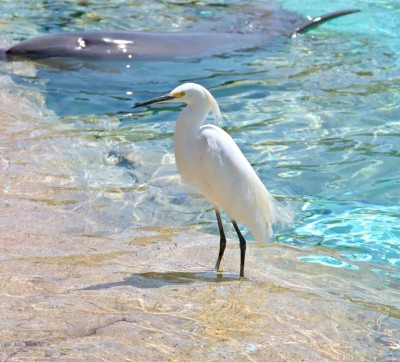Judges
The first black judge to have been appointed by the president to the federal bench was William Henry Hastie, whom Franklin Delano Roosevelt named as a district court judge for the U.S. Virgin Islands in 1937.

Julian Bond was on the cutting edge of social change from 1960 until he passed away on August 15, 2015. He was an activist who has faced jail for his convictions, a veteran of more than 20 years service in the Georgia General Assembly, a university professor and a writer
Horace Julian Bond was born in Nashville, Tennessee on January 14, 1940. Bond and his family moved when he was five to Pennsylvania, when his father, Dr. Horace Mann Bond, was selected as the first African-American president of Lincoln University, his alma mater. Bond first studied at George School, a private Quaker preparatory boarding school near Newtown, Pennsylvania.
Julian Bond attended Morehouse College in Atlanta, where he co-founded the Committee on Appeal for Human Rights and the Student Non-Violent Coordinating Committee (SNCC). As a member of SNCC, Bond also took part in voter registration drives in Georgia, Alabama, Mississippi, and Arkansas.
Active at Morehouse, Julian Bond was a member of the varsity swimming team, and one of the founding members of a literary magazine called The Pegasus. While in college he also interned at Time magazine. Bond left Morehouse in 1961 and returned to complete his BA in English in 1971 at age 31. With Morris Dees, Bond helped found the Southern Poverty Law Center (SPLC), a public-interest law firm based in Montgomery, Alabama.
In 1961 Bond joined the staff of the Atlanta Inquirer and was elected to the Georgia State Assembly four years later. But the Assembly refused to seat Bond, citing his endorsement of a SNCC directive that urged young black men to illegally avoid the military draft. A second election, and then a third, yielded the same result, and in 1967 the U.S. Supreme Court, for the first time in American history, overruled a state legislature’s right to establish and maintain its own qualifications for seating members.
During the 1968 Presidential election, Julian Bond led a challenge delegation from Georgia to the Democratic National Convention in Chicago. Here, unexpectedly and contrary to his intention, he became the first African American to be proposed as a major-party candidate for Vice President of the United States. While expressing gratitude for the honor, the 28-year-old Bond quickly declined, citing the constitutional requirement that one must be at least 35 years of age to serve in that office.
In 1980 Bond began hosting America’s Black Forum, the oldest black owned show in television syndication; he remains a commentator on the program to this day. He also has narrated a number of documentaries, including Eyes on the Prize, PBS’s award-winning production about the civil rights movement, and he has lectured at the Institute for Policy Studies.
Julian Bond resigned from the Georgia Senate in 1987 to run for the United States House of Representatives from Georgia's 5th congressional district. He lost the Democratic nomination in a runoff to rival civil rights leader John Lewis in a bitter contest, in which Bond was accused of using cocaine and other drugs. As the 5th district had a huge Democratic majority, the nomination delivered the seat to Lewis who still serves as congressman.
In 1998, Bond was selected to chair the NAACP, which had recently been rocked by scandals involving former Executive Director Benjamin Chavis, Jr. and Board member Hazel Dukes. He continues to write and lecture about the history of the civil rights movement and the condition of African Americans and the poor. He is President Emeritus of the Southern Poverty Law Center.
Don't miss a single page. Find everything you need on our complete sitemap directory.
Listen or read the top speeches from African Americans. Read more
Read about the great African Americans who fought in wars. Read more
African Americans invented many of the things we use today. Read more
Thin jazz, think art, think of great actors and find them here. Read more
Follow the history of Black Americans from slave ships to the presidency. Read more
Olympic winners, MVPS of every sport, and people who broke the color barrier. Read more
These men and women risked and sometimes lost their life to fight for the cause. Read more
Meet the people who worked to change the system from the inside. Read more

Visit my RedBubble page and use Michael Arnold Art to create greeting cards, T-shirts, mugs, and more.

The variety and impressive numbers of mammals, birds and marine wildlife in Alaska draw visitors from all over the world. For some travelers, Alaska is wilderness, at least compared to what they may know from back home. The pristine wilderness of Alaska is, perhaps, the last vestige of thriving populations of North American wildlife. Where else can you see polar bears, bald eagles, blue and humpbacked whales, gray wolves, grizzly bears, orcas, lynx, moose, and hundreds of other rare and endangered species in their original and undisturbed natural habitats?

Enjoy our website filled with original signed acrylic paintings by award winning Artist Michael Arnold. Located in Citrus County Florida, Michael Arnold is a the editor at the Citrus County Chronicle. When he's not busy being an editor, he is an avid artist who enjoys painting in a variety of styles. We hope you take the time to click on each image to see a larger view and to learn what the artist, Michael Arnold has to say about his paintings.

As dog owners and people who care deeply for animals and wildlife, we wanted our Dog Encyclopedia to be a website that could empower pet owners to create the most positive, loving environment for their dogs. Dog Encyclopedia realizes that owning a dog is like adding a new member to your family.

Floridian Nature has everything your are looking for in Florida nature. The wildlife of Florida is rich and varied, yet most of us are familiar with only a dozen or so species: the "well known endangered species such as manatees and panthers; those, like raccoons and squirrels, that have adapted to urban environments; the frightening alligators and black bears; and those like the armadillo who can't seem to cross the road. Yet they are just a few of the many animal species found in Florida.
